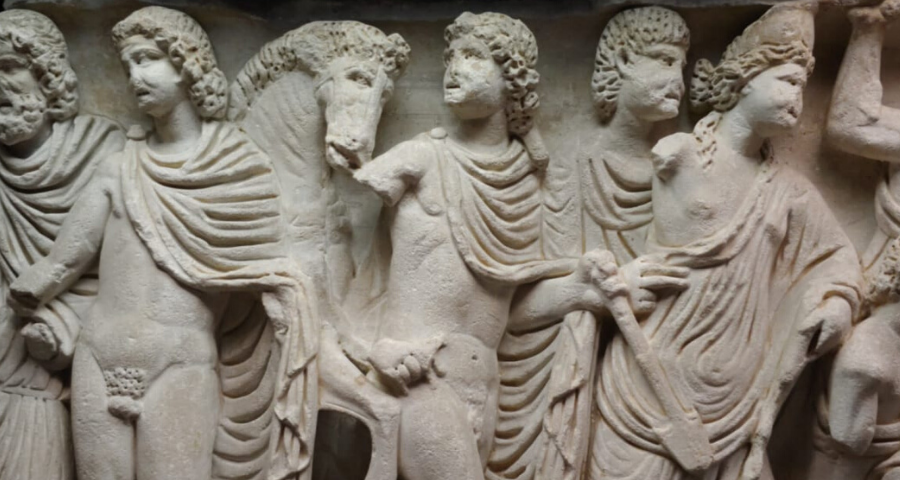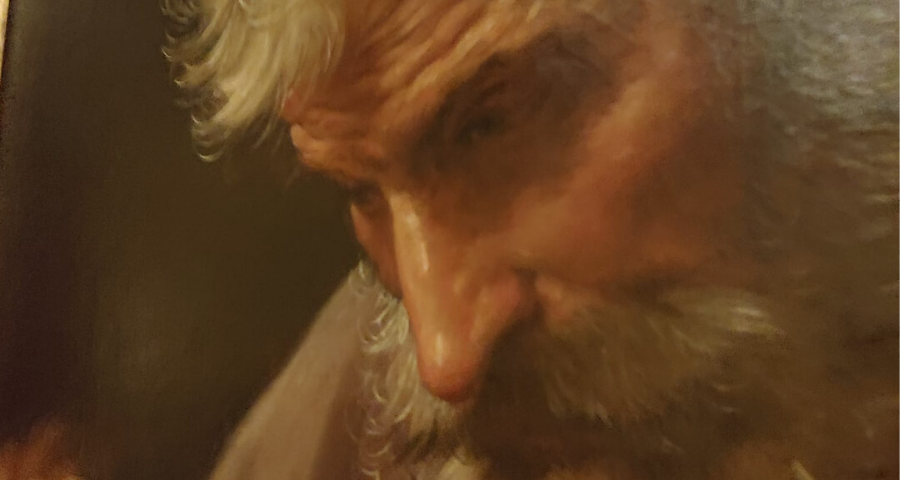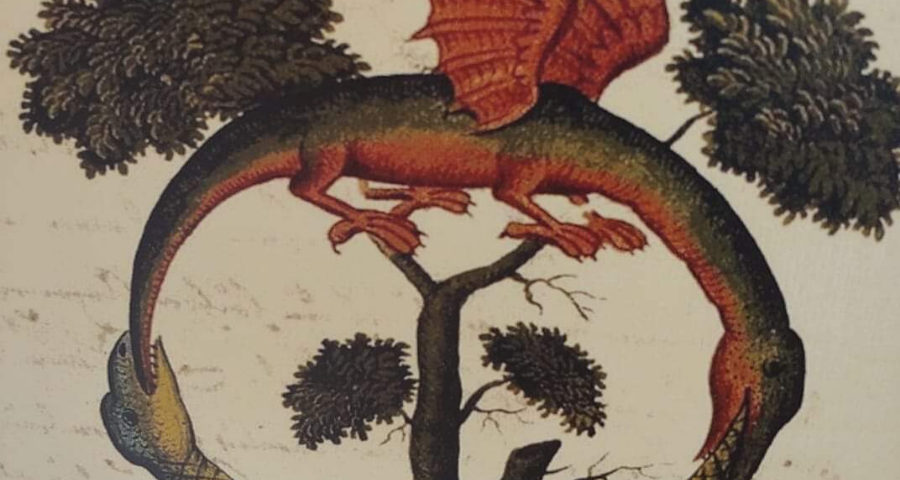Prophecy is history / 3 - Solomon's prayer should become the oath of every ruler
by Luigino Bruni
Published in Avvenire 16/06/2019
« But you, spectators of the story of the chalk circle, learn from the ruling of the ancients: what is there must belong to those who make good use of it: the carts and wagons to the good drivers, who thus will proceed well on their way, the valley to those who irrigate the earth well, thus it will bear fruit, the children to maternal women, who thus will bring them up well »
Bertolt Brecht, The Caucasian Chalk Circle
Solomon begins his task as king by asking God for the gift of a heart that is able to listen. And is immediately put to work in solving the dispute between two mothers over a child. Was it the right choice? And why?
The first exercise of wisdom for Solomon concerns two women, "two prostitutes", two poor women, two victims, two slaves (such was the situation of prostitutes in society in those days). Two unfortunate people who find themselves managing the most personal and intimate crisis a woman can experience: the death of her child. Two desperate mothers, engaged in a prodigious duel of life and death, a dispute between two people who are both torn apart, struggling to have and keep a child, who in that male-dominated world was often the only joy a mother had. If we want to learn and grow better from this reading, splendid and difficult as it is, we must try to get through it with compassion and mercy. So that we can recognize it later in our homes and in our courts, where similar words, speeches and tears, along with the same desperate lies, echo every day, spoken in front of children who risk ending up ripped apart.
«Solomon showed his love for the Lord by walking according to the instructions given him by his father David, except that he offered sacrifices and burned incense on the high places» (1 Kings 3,3). The beginning of the reign of Solomon - whose name comes from the great Hebrew word: shalom - is immediately marked by the sacrifices offered on the sanctuaries of the Canaanite heights: «The king went to Gibeon to offer sacrifices, for that was the most important high place, and Solomon offered a thousand burnt offerings on that altar» (1 Kings 3,4). An exceptional, enormous, exaggerated sacrifice. The narrator also immediately presents us with the bright side of that king so loved that he became an icon of good governance, wisdom and riches in all subsequent biblical history, up to the New Testament. Solomon spends the night in the sanctuary, perhaps because it was a sacred place known for its quality of "incubation" (dream theophany): «At Gibeon the Lord appeared to Solomon during the night in a dream, and God said, “Ask for whatever you want me to give you"» (1 Kings 3,5). The new king introduces, reveals and proves himself through the kind of question he poses to Yahweh, perhaps formulating the most beautiful request ever addressed to God by a sovereign, in the Bible and in any kind of religious literature - more than our answers, it is the questions that we ask ourselves, to others, to life, to God, that continue to reveal our moral quality. After having reminded God of the sense of justice and faithfulness of his father David (1 Kings 3,6), Solomon declares himself inadequate to carry out the task: «I am only a little child and do not know how to carry out my duties» (1 Kings 3,7). This admission of insufficiency assimilates Solomon to other great biblical figures of youngsters: Jeremiah, Samuel, Joseph ... Mary. These are the exact words of his question that have entered the spiritual heritage of Western culture: «So give your servant a discerning heart» (1 Kings 3,9).
A wonderful phrase, which we ought to write in all schools of public administration, in the faculties of political science, in the headquarters of political parties, in the palaces of governments and parliaments, in the boards of companies. We should have all the new ministers recite it during the inauguration ceremony, and make "Solomon's prayer" something analogous to the Hippocratic Oath of doctors. A heart that listens, "so that it knows how to do justice to your people and knows how to distinguish good from evil". I like to think that Yahweh, in the dream, was amazed by Solomon's question - humanity will continue to improve as long as humans are able to amaze God with questions far more beautiful and greater than they are. God answers the young king's prayer - «I will do what you have asked. I will give you a wise and discerning heart, so that there will never have been anyone like you, nor will there ever be» (1 Kings 3,12). But he also grants him that which he had not asked: «“Since you have asked for this and not for long life or wealth for yourself, nor have asked for the death of your enemies but for discernment in administering justice, … moreover, I will give you what you have not asked for, both wealth and honour, so that in your lifetime you will have no equal among kings"» (1 Kings 3,11-13). It is the act of not asking for the things that sovereigns generally would ask and want, that makes him obtain them. This is a beautiful episode of serendipity, where both economic and political assets are donated precisely because they were never sought. This is what should happen in every good government of any community: merely searching for "a heart that listens", the one and only instrument needed for the one and only necessary act: the discernment between good and evil; and then everything else is a bonus. If we sought and asked for this listening heart more often, the civilization of the hundredfold would be a reality.
But there’s more to this request. A heart that listens can only be donated. By life, by our parents, by God. It cannot be learned in a business school or in sad leadership courses. And if it is a gift then it can only be asked, awaited and prayed for. A politician should at least know this prayer out of Solomon’s prayers, recite it every day, and direct it to heaven even if he thinks it is empty; because if he learns to ask for this gift he will become aware of his indigence, which alone can generate humility and therefore wisdom. At the end of this formidable dialogue, «Then Solomon awoke—and he realized it had been a dream» (1 Kings 3,15). His reaction (and that of biblical man) is the opposite of what we would have had in similar circumstances. When we wake up from a beautiful dream, waking up takes away the value of the experience and its messages - "how unfortunate: it was just a dream". For the biblical man, however, if a dialogue with God happens during a dream, those words acquire a status of greater truth - oh if we could learn to dream of God again! Wisdom received as a gift and the heart that listens, immediately become an exercise in good governance in one of the rightly most famous and wonderful stories in the Bible: the child fought over by two mothers. The editor probably found this story among contemporary or earlier stories (there are many known variations of the story in ancient oriental tradition, which also influenced an author like Bertolt Brecht).
The protagonists are two women - two mothers, "two prostitutes" - a living child, a dead child, and the king called upon to judge: «Now two prostitutes came to the king and stood before him. One of them said, “Pardon me, my lord. This woman and I live in the same house, and I had a baby while she was there with me. The third day after my child was born, this woman also had a baby. We were alone; there was no one in the house but the two of us. During the night this woman’s son died because she lay on him. So she got up in the middle of the night and took my son from my side while I your servant was asleep. She put him by her breast and put her dead son by my breast"» (1 Kings 3,16-20). The other mother denies this version of events: «No! The living one is my son; the dead one is yours» (1 Kings 3,22). The two quarrelled in front of the king, who after listening took the floor and proposed the famous “Solomonic” solution: «The king said: this one says: “My son is alive and your son is dead”, while that one says: “No! Your son is dead and mine is alive”. Bring me a sword!… Cut the living child in two and give half to one and half to the other» (1 Kings 3,23-25). The paradoxical solution has its desired result, in revealing information that has not yet emerged to the two women. And in fact, the woman with the living son then says: «Please, my lord, give her the living baby! Don’t kill him!» (1 Kings 3,26). But the other said: «Neither I nor you shall have him. Cut him in two!» At this point the king solves the case: «Then the king gave his ruling: “Give the living baby to the first woman. Do not kill him; she is his mother”» (1 Kings 3,27). A dramatic and wonderful story, which tells us many things.
First of all, the story tells us what Solomon's sentence was, but does not provide us with much evidence to understand who the mother of the living child really was. While reading the story we could easily imagine other scenarios. The woman who wins in the end could only have been more human and generous than the other one, or even more intelligent. Knowing the Wisdom of Solomon, she could have anticipated the king's reasoning and then make her best move to maximize her result and have the child to herself. This kind of reasoning, typical of those who have been trained in the economic and strategic logics of the "game theory", was certainly not that of the writer of this biblical text. He (or they) was primarily interested in telling us that the choice made by Solomon was the wisest one because it was a choice for life. And to praise the woman who put the child's life before her individual happiness. The Bible does not want to «lay a hand on the boy» (Genesis 22,12), it does not wish for the child to die – and when he dies (because we are not always able to save children) it is always a dark night in the Bible, of God and of man. Biblical humanism is the humanism of life, which is why Salomon made the wisest choice.
But we can read and take other things from these words as well. Children are not the property of their mothers. They are everyone’s ’property’ and therefore nobody’s. The first law of the earth is the life of children, which is infinitely more valuable than the quarrels and rights of adults. Finally, if a woman had written the Books of Kings, perhaps she would have told this very story differently. She would not have had Solomon say "bring a sword", because when children are in play swords should not ever be used, even for fun. She would have spent more humane and supportive words for the second mother, and she would first of all have understood her personal drama and only subsequently passed her judgement on her (probable) lie. She would also have given those two women names, because the most elementary dignity of victims is to give them a name. Perhaps she would not have revealed their profession (an ugly adjective that did not serve any purpose in the story), and perhaps she would have given a name to both the living child and the dead child, because women always call their children by name. The hearts of women listen differently. But the story was not written by women, nor by mothers. But we can read and reread it with them, to try to surprise God with our questions.
Download pdf article in pdf (201 KB)













